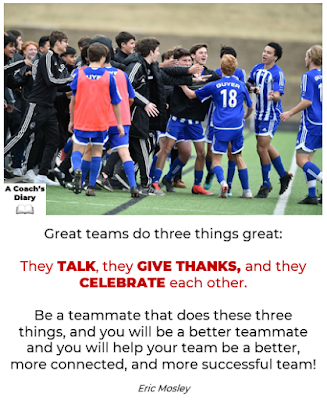Maybe It's My Fault

One of my favorite Michael Jordan commercials is his, "Maybe It's My Fault" commercial. Michael says, "Maybe it's my fault. Maybe I led you to believe it was easy when it wasn't. Maybe I made you think that my highlights started at the free-throw line and not in the gym. Maybe I made you think that every shot that I took was a game-winner, that my game was built on flash and not fire. Maybe it's my fault that you didn't see that failure gave me strength; that my pain was my motivation. Maybe I led you to believe that basketball was a God-given gift and not something that I worked for every single day of my life." This is my favorite commercial because it made Jordan real. MJ was such a super-hero to so many of us, but this commercial made me realize that Jordan was not born the great basketball player who ever lived - he worked hard to become the greatest basketball player who ever lived. He tried, he failed, and he tried again. His failure fuel...










